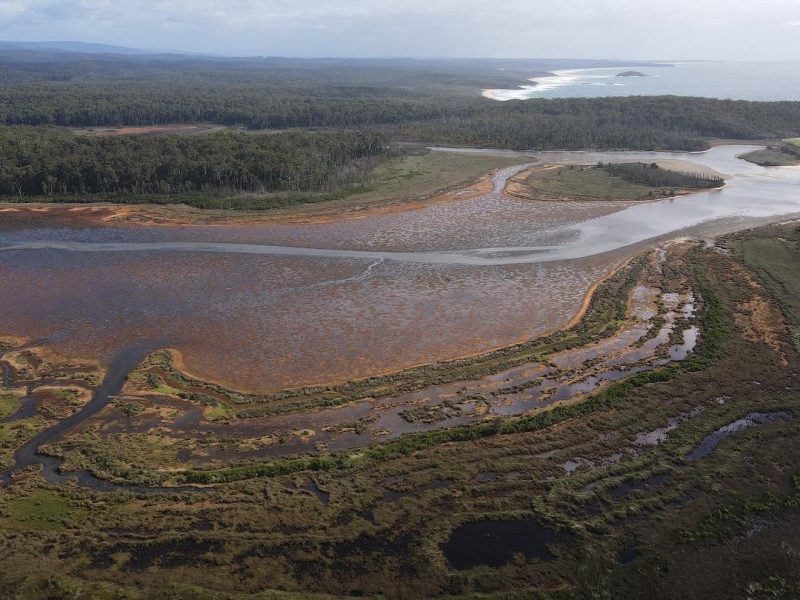Words by Prof Bruce Thom.
Courtesy of https://australiancoastalsociety.org.au/

Over the past few years I have had the opportunity of participating in deliberations related to the health of certain Australian estuaries including coastal lakes. It has opened my eyes even more to an array of concerns that are captured by the word “lament” (an expression of sorrow, grief, or sad regret). Perhaps this is going too far as one could argue that current awareness of threats facing our estuaries is or potentially will trigger management actions preventing irreversible degradation of ecosystems and harm to the public.
My first encounter with estuary pollution was the result of swimming at Redleaf (now Murray Rose) Pool in Sydney Harbour in 1955 and emerging with a film of oil on my skin. At that time there was little control on bilge discharge from ships. On a boat trip up the Ord Estuary in Western Australia in 1971, the sight of masses of dead fish on the banks downstream from irrigated cotton fields alerted me to impacts of pesticides on this well flushed tidal system. These two occurrences are a personal reminder that estuary pollution is not new. However, across urban Australia with increasing populations, as well as coastal areas that receive discharge from agricultural lands, our estuaries remain under pressure from human activity.
In 2014, Eric Wolanski edited a collection of papers in a book titled “Estuaries of Australia in 2050 and beyond” (Springer, New York). We are all indebted to Eric for his long-standing commitment to estuaries. He dedicated the book to his grandson with a most moving statement: “I hope that SOME (my emphasis) will remain healthy for him to entrust to his children”. In the foreword it is noted that “In Australia, as anywhere else in the world, the coastal zone and its estuaries, large and small, are amongst the most endangered areas. Pollution, eutrophication, urbanisation, land reclamation, dams, irrigation, over-fishing, and exploitation continuously threaten the future of some estuaries, which bear the full pressure of these developments”. The former Prime Minister, Malcolm Fraser, in the Prologue recognises how the book offers science-based solutions to achieve ecologically sustainable development. He made the highly pointed statement that “This book is especially important because both major political parties have virtually adopted a policy of ‘little Australia’, probably as a means of avoiding environmental and developmental difficulties and the investment that would be needed for both”. How prescient in 2022!
